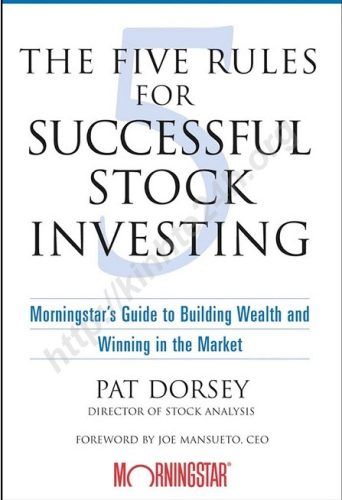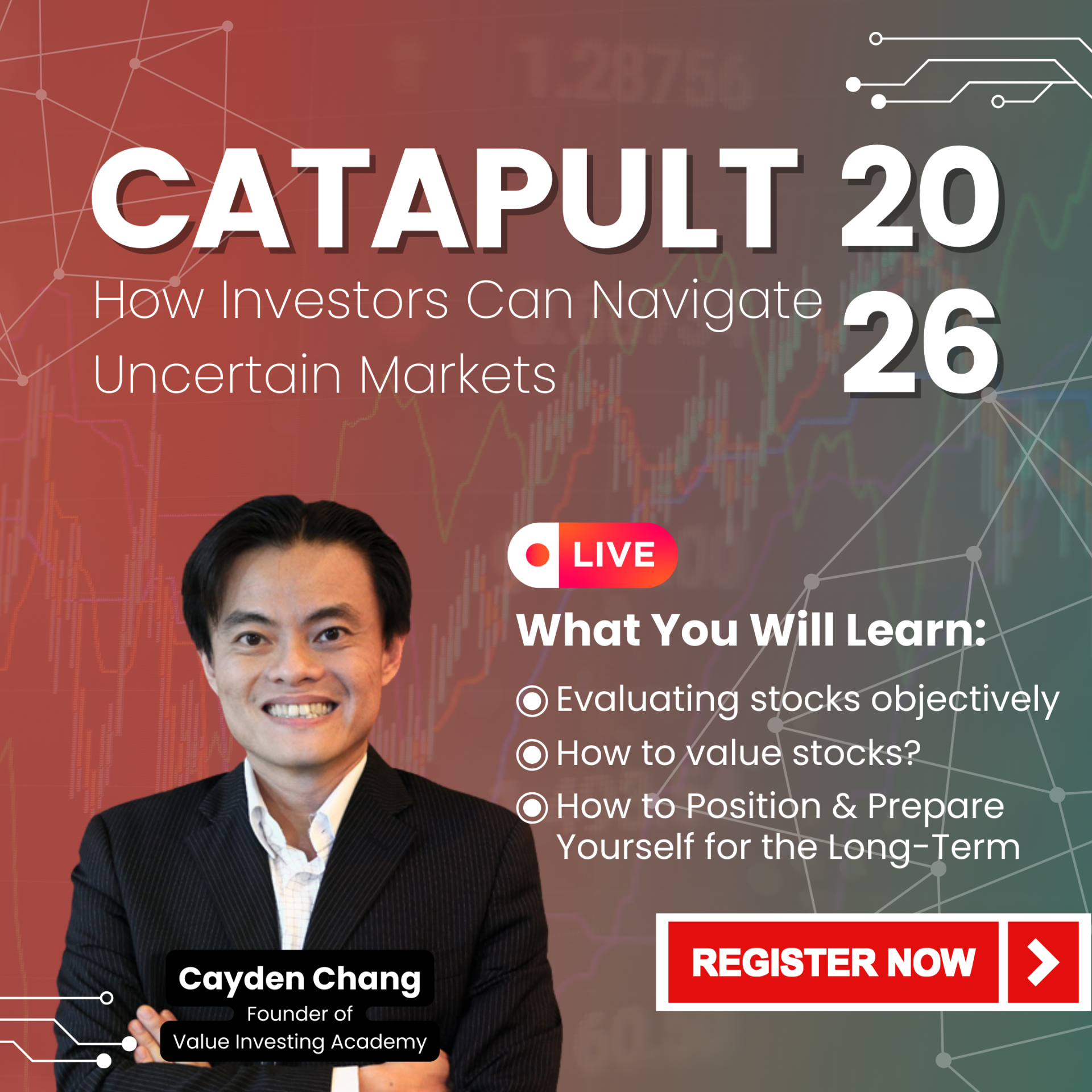We’re finally down to the last instalment of our 4-part miniseries on Value Investing and Warren Buffett. The word ‘value investing’ is probably most closely associated with Warren Buffett than just about any other investor in the world and that’s rightly so. After all, Buffett’s the fourth richest man in the world with a fortune worth about US$54.6b (as of March 2013) that was built almost solely on investing in businesses and the stock market.
Many books have been written about how Buffett invests and his annual Berkshire Hathaway (a publicly listed American conglomerate that’s controlled by Buffett) shareholder letters are always eagerly anticipated by investors around the world who are keen on an investing-education from the master. Long-time readers of books on Buffett and his shareholder letters will no doubt pick up on his slant toward investing in great businesses (which can earn and sustain above average profits for long periods of time) at reasonable prices and holding for them for the very, very long term.
But, as we had shared in earlier posts, Buffett learnt about investing from his mentor Benjamin Graham, who is widely considered the intellectual patriarch of value investing. Graham invested very mechanically, and basically wanted to invest in a large basket of stocks that were selling at prices lower than their theoretically recoverable value should it be liquidated – these companies were essentially worth more dead than alive.
And at the start of Buffett’s professional investing career, that was indeed how he operated. That’s a far cry from some of Buffett’s well known investments in companies such as Gillette, American Express, Coca-Cola and See’s Candies and what he preached about investing in his Berkshire Hathaway shareholder letters isn’t it?
So, what happened was Buffett came to know Philip Fisher and Charlie Munger and both of them were always on the look-out for the kinds of great businesses mentioned earlier. Buffett slowly adopted their methods into his own framework and became the investor he is today.
So, let’s take a look at what’s arguably the most important aspect of Buffett’s interpretation of value investing, apart from his rightly-placed emphasis on the parable of Mr. Market and a Margin of Safety (both of which were briefly described in the first post) – Buffett’s focus on an Economic Moat and by extension, a company’s Return on Equity.
Buffett describes an economic moat as a protective barrier to a company’s above average profits, much like how a real moat protects a castle a ‘above average profit’ from invaders. In the capitalist world, companies that earn high profits will likely attract competitors. The more competitors there are, the lower the profits the original company can earn, or at least that’s how the theory goes. In reality, there are companies who have successfully prevented competitors from taking away their profits and that is due to the presence of an economic moat.
Moats can come in many forms and Pat Dorsey’s book The Five Rules for Successful Stock Investing contains a great framework to think about economic moats. To Dorsey, economic moats can arise from:
- Real Product Differentiation through "superior technology or features"
- Perceived Product Differentiation through "a trusted brand or reputation"
- Being a Low-Cost Producer so that products or services can be offered to consumers at lower prices than competitors
- Making it very expensive for customers to switch to a competitor's products or services by creating High Switching Costs. A good example can be the IT systems used by companies – they are generally very reluctant to change such systems due to existing familiarity with the systems as well as the costs associated with it.
- Create a High Barrier to Entry such as through the need for very costly equipment or premises.

Pat Dorsey – The Five Rules For Successful Stock Investing
These forms of Economic Moats might not be the exact way Buffett thinks about them, but they do provide a great starting point to study the reasons why a company can earn above average profits for sustained periods of time.
And this brings us to the return on equity, or ROE. Buffett likes companies to demonstrate consistently high ROEs (there’s no official definition of ‘high’ though) as a sign that there is something that is able to protect the company’s above-average profit. ROE measures the return on the capital that shareholders have pumped into a business and generally the higher the return, the better it is for shareholders. If companies do not employ significant leverage by taking on too much debt, its ROE can be a very good gauge on the true profitability of a company’s operations and it can provide investors with a great clue on the presence or absence of an economic moat.
In essence, ROE and the presence of an Economic Moat helps to differentiate a great business from a run-of-the-mill business. That’s the main difference between Buffett’s thinking and Graham’s form of value investing. Graham never sought to find out if a business was better than its competitors or not whereas Buffett eventually placed a lot of emphasis in investing in companies that are a notch above their competitors. Buffett believed that investing in such companies would prove to be a lot more profitable than investing in statistically-cheap companies over long stretches of time.
Perhaps, the best summary on how Buffett had evolved as an investor could be this quote of his: “It’s far better to purchase a wonderful company at a fair price than a fair company at a wonderful price”. Graham would have preferred a fair company at a wonderful price and that was how Buffett started. But over time, Buffett would become the well-known investor and businessman he is today by following his maxim of buying a wonderful company at a fair price.
Value investing has indeed evolved a lot from Graham’s thinking to Buffett’s current philosophy. But the greatest takeaway among their very different approaches, is their insistence on studying stocks as a piece of a business. Value is a subjective measure, as can be seen from Graham and Buffett’s different views on it. But, never forget that investing by thinking of stocks as a business will always ring true.
Howard Marks emphasizes the vital role of risk management in achieving investment success. He likens investing to selecting lottery tickets, where superior investors better understand the potential outcomes, allowing them to make informed decisions. Marks argues that risk assessment should rely on subjective judgment rather than just quantitative measures; qualitative insights from experts can offer more valuable perspectives on potential losses than mere statistics.
Preparedness for uncertainty is crucial, as risks can lead to unexpected outcomes, including permanent capital loss or missed gains. He advocates for continuous risk management, rejecting the simplistic "risk on" or "risk off" mentality. Investors must constantly evaluate when to take risks and when to safeguard their portfolios, much like players in soccer who adapt without breaks, unlike teams in American football that switch between offense and defense.
Rather than avoiding risk, it is essential for capitalizing on investment opportunities. As he puts it, taking calculated risks is vital to achieving success in investing.
In conclusion, the integration of both quantitative and qualitative analysis offers a comprehensive understanding of a company's risk profile, enabling investors to navigate uncertainties effectively. This strategic approach not only safeguards investments but also enhances the potential for long-term success by aligning investments with personal risk tolerance and financial objectives.
Click
here to claim your Free Company Analysis.
Related Articles





